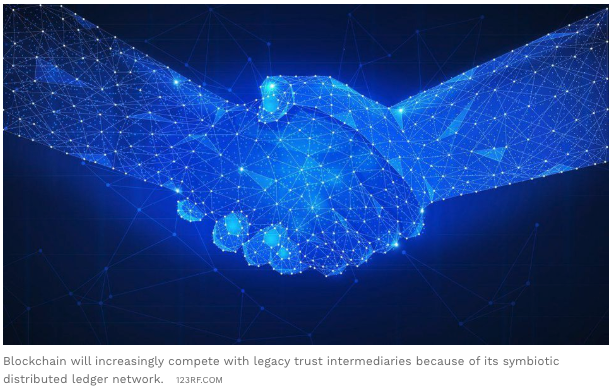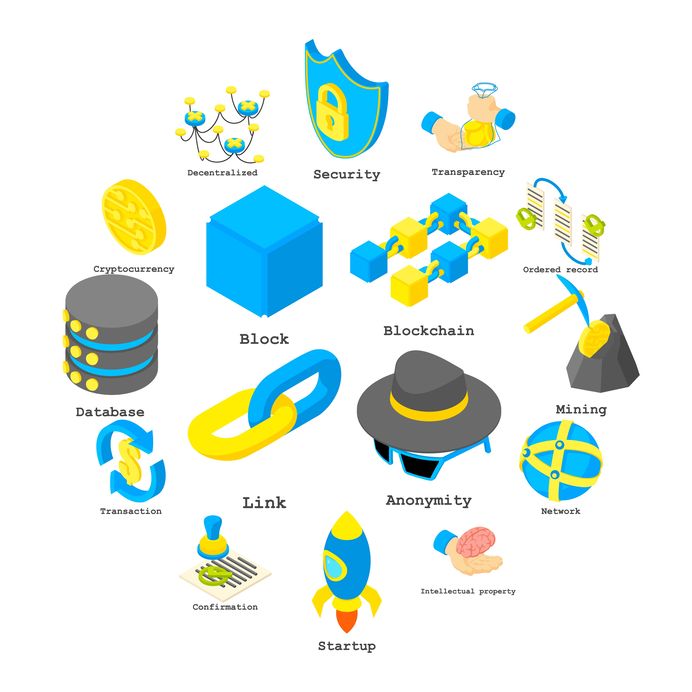“There is one thing that is common to every individual, relationship, team, family, organization, nation, economy and civilization throughout the world — one thing which, if removed, will destroy the most powerful government, the most successful business, the most thriving economy, the most influential leadership, the greatest friendship, the strongest character, the deepest love. On the other hand, if developed and leveraged, that one thing has the potential to create unparalleled success and prosperity in every dimension of life. That one thing is trust.”
The speed of Trust, by Stephen M. R. Covey with Rebecca Merrill
Trust is a sine qua non of Digital Economy, and honesty is not ethical, but an economic issue says Don Tapscott and Alex Tascott (2018). Trust means depending on people, institutions, intermediaries or even things for mundane to essential matters of life. With trust, humanity has built centralised trust-based and powerful systems such as governments, financial, health institutes and other intermediaries leading us to our modern civilisation. However, as Don Tapscott and Alex Tascott (2018) mention, trust implies vulnerability and the people, governments, and companies we trust may fall short of honesty, consideration, accountability and transparency and loose trust amongst each other. When that happens, the trust-based system falls apart in implications on the loss of time, money, energy and reputation. Many activities require trust.
According to a Trust expert, Rachel Botsman (2017), “we are at the tipping point of one of the biggest social transformations in human history with fundamental consequences for everyone and new world order is emerging”. She points out that while there may be loss of faith in institutions and leaders, millions of people are placing their trust to rent homes, buy taxi rides and exchanging digital currencies, goods and services amongst total strangers.
Without trust in the government, a currency note is valueless, without election commissions, a vote in an election is only a pointless ritual, and without a trusted peer-to-peer taxi ride service company someone offering a ride in their car could be a potentially dangerous stranger. However, since the last ten years, the Bitcoin and similar inventions have shown us that currency or transfer of value can be trusted without trusting anyone in particular to verify transactions. Bitcoin focused on the decentralization of trust with value exchange without the need for trust or central authority.
Using DLT/Blockchains records/blocks can be updated with non-erasable information via a predefined consensus protocol. Consequently, creating verifiable and visible footprints to serve as a trust-machine, that allows establishing facts, fending off the dependencies for intermediaries and dissipating the murky clouds of alternative truths and fake information. Propelled by the game-changing, disruptive and innovative, DLTs and Blockchains technologies, we probably are at the advent of the age of distributed trust, a paradigm shift enabling transparency in decisions, actions and transactions, bringing back consumer control
References:
- Don Tapscott and Alex Tascott (2018) Blockchain Revolution, Updated Edition., New York, Penguin Random House LLC.
- Rachel Botsman (2017) Who Can You Trust?: How Technology Brought Us Together and Why It Might Drive Us Apart, Public Affairs.
How does Blockchain building trust between transacting parties contribute to the SDGs?
How do you identify that you really need Blockchain for your business problem?





